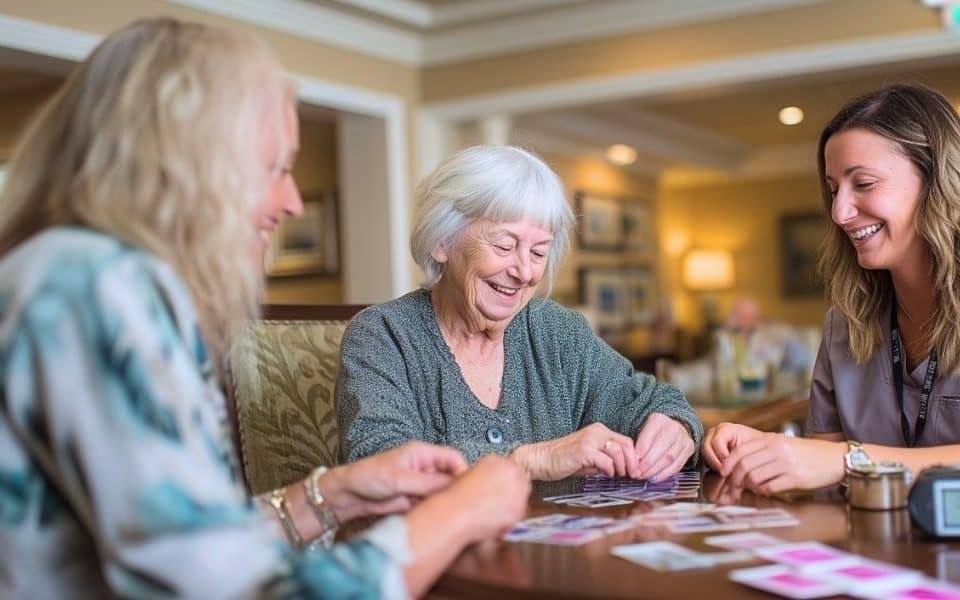
Wandering in dementia is a common challenge that creates serious safety risks. Six in ten people living with dementia will wander at least once, and many will wander more than once.
Families often feel great anxiety about the potential for wandering. However, preparation can make a big difference. With the right steps, you can keep your loved one safe while preserving their quality of life.
Understanding Wandering in Dementia and Practical Safety Measures for Families
Why Wandering Happens
Dementia affects memory, orientation, and judgment. A person may forget where they are, believe they need to be elsewhere, or feel compelled to walk without a clear purpose.
Triggers often include confusion, unmet needs, stress, or boredom. These episodes are not random but linked to predictable patterns. Recognizing the “why” behind wandering is the first step toward prevention.
Warning Signs You Should Watch
Wandering rarely happens without signals. Subtle behaviors often appear before a person leaves the home. Your parent may show these signs early, and being alert allows you to act before an unsafe event occurs.
- Restlessness or pacing without a clear purpose
- Repeated attempts to “go home” despite already being there
- Confusion about time or place
- Difficulty following simple directions
- Frequent checking of doors or windows
Safety Risks and the Role of Time
Wandering can turn dangerous quickly. Half of individuals not found within 24 hours face serious injury or death.
Many incidents happen close to the person’s home, but outcomes worsen when searches are delayed. Families should treat every wandering event as urgent. Having a clear response plan improves safety and shortens recovery time.
Home Safety Measures That Work
Practical steps to protect against wandering should be on your home safety checklist. A consistent daily routine lowers stress and provides comfort. Labeling rooms with simple words or pictures helps with orientation.
Storing keys, shoes, and bags out of sight reduces cues that prompt leaving. You may also install door sensors, add locks at different heights, and use night lights to guide safe movement indoors.
Meeting basic needs on a schedule, including meals, hydration, and rest, lowers agitation. Medication reviews with a physician can also reduce confusion.
Identification and Tracking Options
Even with prevention in place, you need backup plans. Medical ID bracelets or pendants give first responders critical information. GPS devices or smartphone apps can track location when wandering occurs.
Bed or door sensors can alert you or caregivers at night. These tools add layers of protection but should never replace attentive care.
Community Programs That Help
National and local programs provide extra support during emergencies. The Alzheimer’s Association partners with MedicAlert® + Safe Return, a 24-hour program that helps first responders reconnect people with their families.
Many states operate Silver Alert systems, which broadcast details about missing adults with dementia to law enforcement and the public. Asking local agencies about enrollment ensures you are ready if an incident occurs.
What To Do If A Loved One Goes Missing
Immediate action matters. Call 911 right away and explain that your parent has dementia. A recent photo, clothing details, and medical information will aid the search.
Police may activate a Silver Alert if the program is available in the area. You can search familiar routes, favorite spots, or places from the past while keeping your phones open for law enforcement. You should also notify neighbors, transit staff, and local businesses. Quick, coordinated action improves the chances of a safe return.
How to Balance Safety and Independence
Safety measures must also respect dignity. Structured walks, meaningful activities, and calm environments give the person a sense of control.
You can reduce overstimulation in crowded places and offer simple choices about daily routines. These approaches protect safety without creating unnecessary restrictions.
When to Consider Extra Support
You may reach a point where professional care is necessary. Repeated wandering, unsafe nighttime exits, or caregiver exhaustion are strong signals.
Memory care communities provide secure environments and staff with dementia care training. At Bethel Gardens, our team focuses on both protection and dignity. We offer structured routines and personalized care that address wandering behaviors.
Plan early so you can explore the right options and ensure your parent has the care they deserve.
FAQs
What is the first step to reduce wandering at home?
Begin with a daily routine, secure exits, and remove departure cues. Add ID and alert systems for extra protection.
Can certain activities reduce my parent’s risk of wandering?
Yes. Gentle exercise, meaningful hobbies, and structured daily tasks can lower agitation and reduce wandering triggers.
Do GPS devices prevent wandering?
No. GPS can help locate someone after an incident, but it will not prevent wandering. Use these devices along with routines and close supervision.
Which national program supports quick response?
MedicAlert+ Safe Return provides a 24-hour emergency response service that connects families with first responders.
Take the Next Step Toward Safety and Peace of Mind
The possibility of a parent with dementia wandering can feel concerning. However, there are several steps you can take to manage these issues. Small changes at home, combined with community resources and professional care, make a meaningful difference.
At Bethel Gardens, we understand the challenges families face when dementia wandering becomes a concern. Our memory care team provides a secure setting, compassionate support, and proven safety measures tailored to each resident. Contact us today to learn how Bethel Gardens can help your loved one live with comfort and protection.



